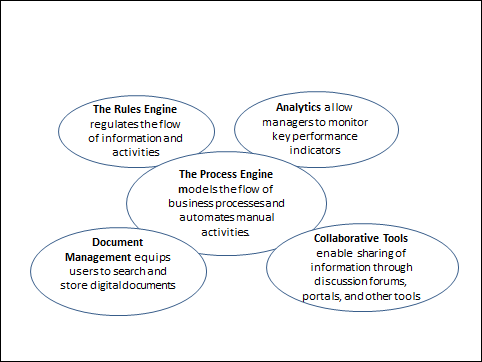There’s increasing attention and focus on reducing complexity. Leaders recognize that certain forms of complexity in their business, which do not add value to customers, involve unnecessary costs. From an IT perspective, as applications continue to grow in size and sophistication, the corresponding challenges in the integration of complex systems are perceived to non-value added drive costs.
Paying special attention to complexity through the application of business process thinking and BPM systems can be instrumental in reducing complexity that customers are unwilling to pay for.
Generally, customers don’t like complexity. But they do like choice and value. The challenge for many organizations is to see the business from the customer’s point of view and take action to reduce the non-value added component of complexity.
George and Wilson offer three rules for dealing with complexity in their book ‘Conquering Complexity in Your Business’:
- Eliminate complexity that your customers won’t pay for.
- Exploit the complexity that customers will pay for.
- Minimize the cost of any complexity you offer.
The practice of defining, measuring, improving and managing the enterprise business processes which deliver products and services to customers can play a crucial role in this respect. Then, the thoughtful application of BPM systems can convert plans into action to simultaneously improve service to customers and reduce costs.
The use of BPM Suites or BPMS can be instrumental in reducing complexity and accelerating business results. A BPMS, as depicted in Figure 1 below, is typically comprised of an integrated system of a process engine, a rules engine, analytics, and collaboration tools – and can be deployed to drive business results in weeks instead of months. It has a built in process orientation and fits well philosophically with quality principles. Further, the process orientation of BPMS is quite different than the siloed view of applications that have often been developed expressively in a departmental context.

Figure 1: BPMS Components
However, note that achieving a shared understanding of the definition, current performance and desired performance level of the enterprise’s critical business processes needs to precede the application of BPM technology.
Can you do that? Before you casually answer “Yes,” just take a minute and ask yourself the following questions.
Does your leadership team have a shared understanding and definition of the entire set of end-toend Business Processes?
Have they determined the appropriate Business Process Measures – from both the company’s and the customer’s point of view?
Is there clarity around the current performance of each end-to-end business process?
Have they set targets for the level of desired performance?
Are leaders monitoring the firm’s performance in providing products/services to customers, from a customer’s point of view?
Are leaders actively engaged in managing the flow of cross-functional activity in the enterprise business processes for continuous improvement?
Once leadership can articulate their strategy in business process terms, the application of BPM suites to reduce non-value added complexity holds exciting promise. In fact, there is increasing interest in BPM software as a means to provide customers with a powerful combination of self-service features, streamlined transaction processing and effective exception handling.
But let’s not forget that while the technology issues are increasingly intricate, the largest barriers to the effective implementation of this type of change continue to be “people related issues” around education, securing buy-in, and ongoing communication.

















